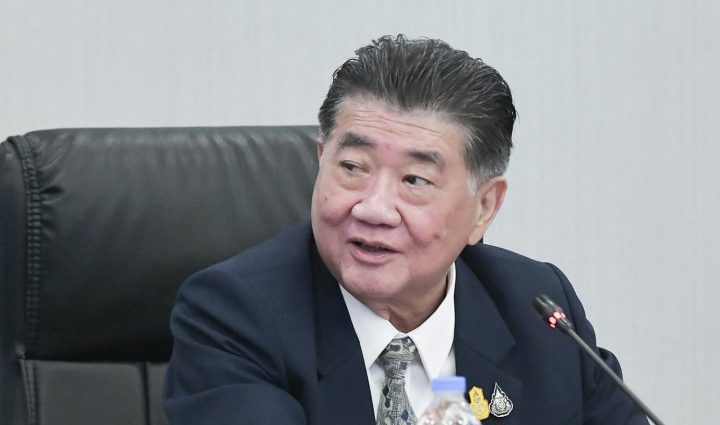Legality of ‘loan bill’ now under review

The government is consulting the Council of State about the legality of a bill seeking to borrow 500 billion baht to finance the 10,000-baht digital money handout scheme.
Deputy Prime Minister Phumtham Wechayachai said on Tuesday the bill has been sent to the council, the government’s legal advisory body.
“We will try to ensure the council finishes its consideration as soon as possible,” he said while acknowledging the scheme has its supporters and critics.
“Pheu Thai pledged the digital wallet policy during election campaigning. When people decided to vote for [it], and Pheu Thai became the government, [those who disagree] must accept and respect the choice and wishes of the voting public.
“Pheu Thai, as the ruling party, is acting in line with the people’s intentions. But we do not ignore those who hold different opinions. We always listen to them,” said Mr Phumtham, who is also a deputy Pheu Thai leader.
“I insist the digital wallet scheme is intended to stimulate the economy. It’s not just a free money giveaway. It is an election pledge, and the party must deliver on its promise.”
Government spokesman Chai Wacharonke also defended the policy on Tuesday, saying the government had consulted the Bank of Thailand and the National Economic and Social Development Council, among others, about it.
They agreed the loan bill would be the best source of funding if endorsed by parliament, the spokesman said. Previous governments have also enacted loan bills to finance schemes that required substantial sums of money, he said.
Mr Chai said that the government is trying to seek the best solution and is determined to push for the implementation of the scheme.
“Many people are looking forward to the handout,” the spokesman said, adding the scheme will spur micro-investment as many recipients will pool the money they receive with that of their family members to make a bigger investment.
Some coalition parties remain non-committal about the handout, saying they would wait for the Council of State’s verdict first.
Chartthaipattana Party leader Varawut Silpa-archa, who also serves as the social development and human resource minister, said the council’s edict should lay to rest any doubts.
“Some have supported the scheme while others have spoken out against it. I think I will wait to hear the council’s opinion first, and then parliament can proceed.”
“No one can force the hand of coalition parties,” said Deputy Prime Minister Anutin Charnvirakul. “If the handout scheme benefits the public and is in line with the law, the coalition parties are duty-bound to support it.
“I believe the government will act in line with the law,” he said, speaking in his capacity as leader of the Bhumjaithai Party.
The digital currency will be offered to Thais aged 16 and older who earn less than 70,000 baht per month and have under 500,000 baht in bank deposits.
Based on these criteria, an estimated 50 million people will be eligible — down from the 56 million targeted originally.
The money can only be used for food and consumer goods. It cannot be used to buy online goods, cigarettes or liquor, cash vouchers and valuables like diamonds, gems or gold. It also cannot be used to pay off debts or cover water or electricity bills, fuel, natural gas or tuition fees. The money must be spent in the district where the recipient’s home is registered.

